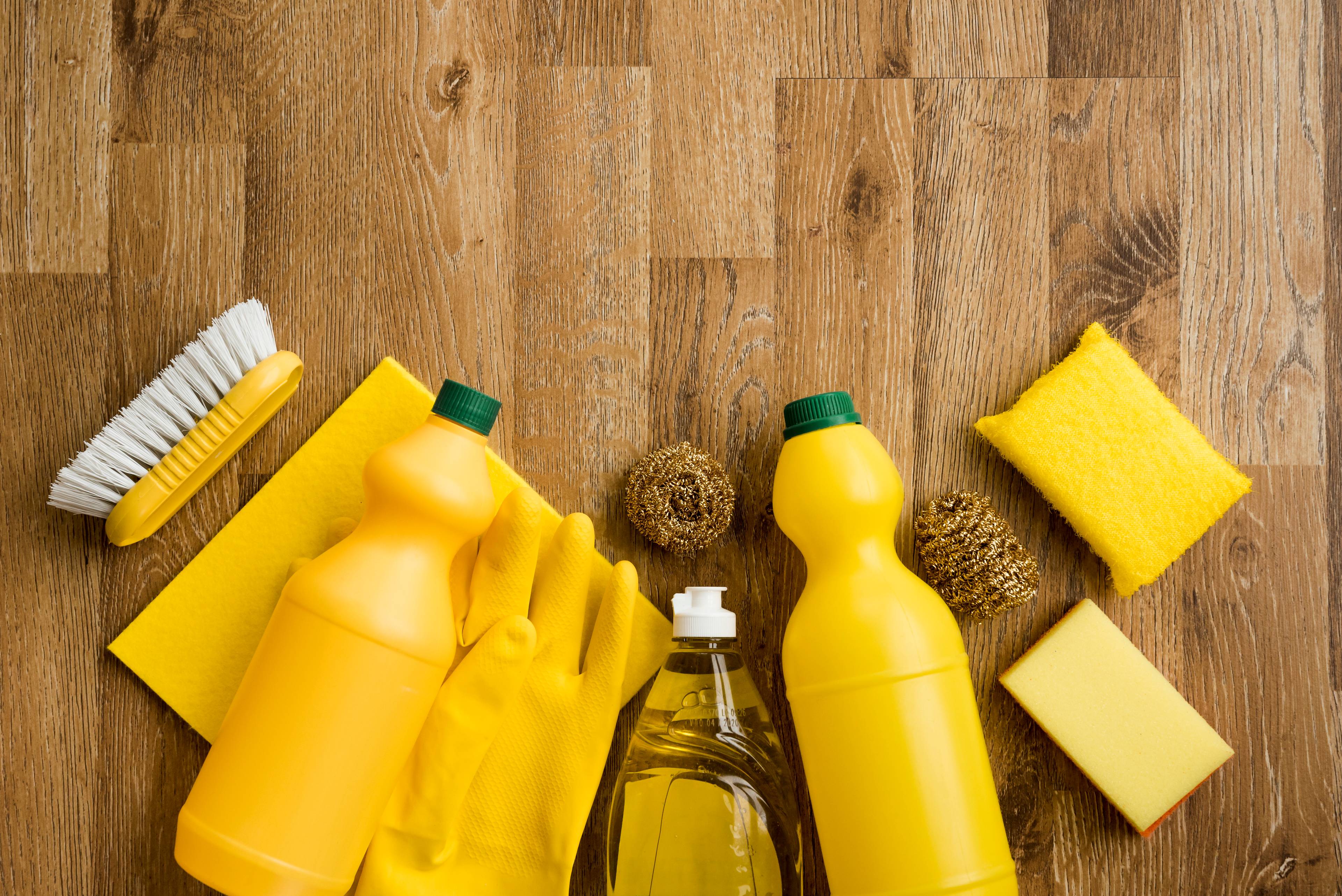If we said cleaning out a storage process was a quick process, we'd be lying! However, while it can be time-consuming, there are certain things you can do to make life easier for you. This includes sorting items to keep, donate, sell, or discard, and hiring professional services for bulky, valuable or heavy items.
Why do you need to clean out a storage unit?
Cleaning out a storage unit prevents accruing unnecessary costs, allows for retrieval of valuable items, and avoids penalties or loss of goods through auctions due to non-payment.
Cost breakdown of cleaning out a storage unit

The costs of cleaning out storage space vary based on several factors. These include the cost of storage unit removal services, the size of the unit, the amount of items to be removed, whether any items need special disposal, and the location of the storage facility.
Given this, it's difficult to give anything other than a rough estimate. For example, some services might charge a flat rate for cleaning, while others might charge based on the volume of items or the duration of the job.
Typical costs could range from:
- Small units (e.g., 25 sq. ft.) could be around £50-£150 depending on the amount of waste and required labour.
- Larger storage units (e.g., 200 sq. ft.) could cost from £150 to several hundred pounds if extensive cleaning and a junk disposal are necessary.
It's always a good idea to contact a local junk removal service directly for precise quotes based on the specific details of your storage unit. This way, you can ensure you get accurate pricing tailored to your particular needs.
What happens if I don't clean out my storage unit?
If you don't clean out a storage unit, there can be several consequences depending on the policies of the storage facility and the terms of your rental agreement:
- Continued charges – Most storage facilities will continue to charge you for the rental as long as your belongings remain in the unit. If these fees go unpaid, they can accumulate quickly.
- Overdue fees and legal action – Failure to pay the rental fees might lead to overdue charges, and in some cases, the facility might take legal action to recover the owed money.
- Loss of stored items – If payments aren't made for an extended period, the storage facility may have the right to seize the contents of the unit. Many facilities include a clause in their contracts that allows them to auction off the contents of the unit to recoup lost rental fees.
- Credit score impact – Unpaid fees that result in legal action or debt collection can negatively impact your credit score, making it harder to rent or buy a home, get loans, or open credit accounts in the future.
- Denial of Access – Some facilities may deny you access to your unit if your account is not in good standing due to non-payment.
If you foresee problems in clearing out your unit or making payments, make sure to communicate with your storage facility. Many are willing to work out payment plans or other arrangements to avoid more drastic measures.
Key points to consider about storage clearance costs

Let's dive into more detail about some of the factors that contribute to the cost of storage cleaning. Understanding these can help you budget more effectively and make informed decisions when hiring professionals or planning a DIY storage unit cleanout.
Size of the unit
The bigger the storage unit, the higher the cost. Larger units contain more items and require more labour and time to sort, remove clutter, and clean. Companies may charge based on square footage or by the type of unit.
Amount and type of items
The volume and nature of storage unit items to be removed impact costs. Bulky items like furniture or appliances typically cost more to remove due to the labour required for safe handling and potential disposal fees.
Accessibility of the Unit
Units that are easier to access can be cheaper to clean out. Factors like distance from the loading area, elevator access versus stairs, and even the location of the storage facility can influence the cost. Units that are harder to reach or are located in facilities without adequate access facilities may increase the labour costs involved.
HOLD offers 24 hr storage space so you can always access your belongings.
Disposal fees
Certain items may require special disposal methods, such as electronics and hazardous materials, which can incur additional fees. The cost of disposing of general waste versus specialised items can vary greatly.
Local labour costs
The geographic location of the storage unit can affect the cost due to local variations in labour rates. Costs for storage units in urban areas tend to be higher compared to rural areas due to higher wages and operational costs.
Additional services

Services like donating items to charity, selling items, or detailed cleaning (like dusting and washing the interior) are typically additional and can increase the total cost. Some services may provide itemized pricing for these additional services.
Duration of the job
The length of time it takes to schedule and complete the cleanout also factors into the cost. Longer jobs require more labour hours, increasing the overall expense. Efficient planning and organisation can help reduce the time needed.
For more help choosing a removal service, check out our guide to the top removal companies in London.
Top tips for DIY storage unit cleaning

Cleaning out your storage unit yourself can be broken down into a few structured steps to make the process efficient and manageable. Here’s a step-by-step guide to help you tackle the cleanout effectively:
1. Preparation
Before you start, ensure you have all the necessary supplies. This includes durable gloves, cleaning products, rubbish bags, packing materials, a marker for labelling, and perhaps a dolly or trolley for moving heavy items. Consider renting a dumpster if you anticipate disposing of a large amount of waste.
2. Sorting
Divide your storage items into four main categories: keep, sell, donate, and discard. As you sort through your belongings, immediately decide which category each item belongs to. This will help you avoid accumulating a pile of unwanted items, which can slow down the process. This can be a pretty big job, so ask a family member to see if they can give you a hand.
Check out our article on decluttering for more tips.
3. Cleaning
Once items are categorised, clean them before moving them out of the unit. Use appropriate cleaning supplies for different materials—dusting off boxes, wiping down furniture with a suitable cleaner, and using disinfectant wipes for electronics.
4. Disposal and donation
Dispose of the discard pile by using the dumpster you’ve rented or taking items to a waste disposal facility. For items that are still in good condition but no longer needed, consider donating them to a local charity. Ensure that the items meet the donation criteria of the chosen organisation.
5. Selling items

For items you wish to sell, clean them thoroughly and take good-quality photos for online listings or prepare them for a garage sale. Online platforms like eBay or local Facebook groups can be effective for selling second-hand items.
6. Reorganising kept items
For the items you decide to keep, organise them back into the storage unit neatly. Use stackable boxes and label them clearly. Consider investing in shelving units to maximise vertical space and keep your unit organised.
7. Ongoing maintenance
Finally, set a schedule for regular visits to your storage unit to ensure it remains clean and organised. Regular checks can help you avoid future large-scale cleanouts and keep your stored items in good condition.
HOLD offers cutting-edge storage solutions
Ready to tackle the clutter in your storage unit but not sure where to start? For those looking for extra help or specific advice tailored to your needs, don't hesitate to reach out. We're a next-gen storage facility with a twist. Based in the heart of Kings Cross, London, we blend a customer-led focus with advanced technology for an exceptional storage experience.
Whether short-term or long-term, business or personal, we've got it covered.
Get your free quote today and make your storage space work for you again!
Frequently Asked Questions
Do storage units collect dust?
Yes, storage units can collect dust over time, especially if they are not airtight or if they are rarely opened and cleaned. Dust can accumulate from the surrounding environment and from the items stored within.
How do you clean items that have been in storage?
To clean items that have been in storage, first remove dust with a dry cloth. Wash fabrics as per their care labels, and clean solid surfaces with appropriate cleaners. For delicate items, use gentler methods like soft brushes or vacuuming with a brush attachment. Dry items thoroughly before use or re-storing.
What can I store in my HOLD self-storage unit?
You can store a wide range of items in self-storage, including furniture, household goods, seasonal items, business inventory, vehicles, and more. However, there may be restrictions on storing hazardous materials or perishable items, so it's best to check with the HOLD store team.
What happens if I don't pay my storage unit UK?
If you don't pay for your storage unit in the UK, the storage facility can deny access to the unit. It may continue to charge late fees, and eventually, can take legal action to recover the owed money.
Additionally, after a specified period, the facility might be entitled to auction off the contents of the unit to cover the unpaid fees. It's important to read the terms of your storage agreement to understand the specific consequences and timelines for non-payment.
What is the cost of storage at HOLD?
It all depends on the size of the storage unit you need and for how long you stay with us. Prices start at £10pw for a locker. To find out a price, get a free quote online.


